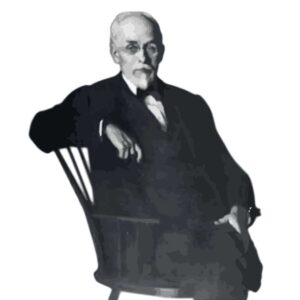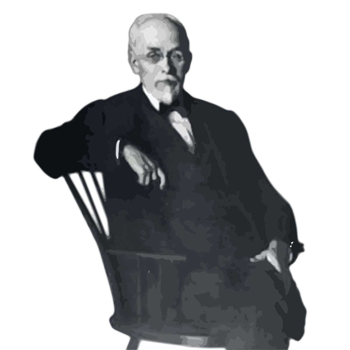
Edward Sylvester Morse was born in Portland, Maine, USA in June 1838. He studied zoology at various universities in the U.S. He received an honorary Doctor of Science degree from Yale University in 1918, an honorary Doctor of Humane Letters degree from Tufts University in 1921, and served as the Japanese Pottery Director of the Museum of Boston and the Director of the Peabody Museum. During his more than two years in Japan, he contributed greatly to the academic world of Japan. He donated 25,000 new scientific books, introduced the theory of evolution, and discovered the Omori Shell Mound, to name a few. He donated the approximately 3,000 pieces of Japanese ceramics he had brought back with him from the previous year to the Boston Museum, and combined them with those owned by Bigelow, Lichthofen, Ross, Weld, Dickson, and others to create the world’s largest collection of Japanese ceramics. In order to replenish the collection, he accompanied Dr. Bigelow, a wealthy Bostonian, to antique dealers and kilns in Tokyo, Osaka, and Kobe, and returned to Japan the following year after traveling to China. The result was the famous “Catalogue of the Collection of Japanese Pottery” (published in 1900). (Ceramics, Vol. VI, No. 5)



